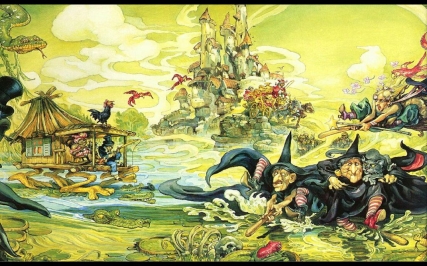Ranting Along
I’ve never read Jane Austen.
I’ve never admitted that before, and I feel no shame.
I remember our high school teachers recommending the classics: Dickens, Hardy, Austen, Voltaire (maybe). If we wanted to get a high grade we had to read at least two.
I eventually read Dickens, A Tale of Two Cities. I even enjoyed it.
![By Hablot Knight Browne (Phiz). Photographer: Heritage Auctions, Inc. Dallas, Texas [Public domain], via Wikimedia Commons](https://leennanaidoo.files.wordpress.com/2015/03/charles_dickens-_a_tale_of_two_cities-with_illustrations_by_h_k_browne_1859.jpg?w=300&h=259)
Before that, I read Tom Jones by Henry Fielding.
That was the coolest classic I’ve ever read, and I couldn’t for the life of me figure out why it wasn’t on the recommendations list.
And then it hit me: potential A-graders were recommended to read intellectual works.
Tom Jones was labelled as humorous, but not intellectual, and the fact that it is often regarded as the first true English novel was never mentioned.
Back in school, some called me an intellectual (and I didn’t much appreciate it) but that’s only because I thought a lot and read a lot. And my reading list, though extensive, showed that I was anything but.
I loved suspense thrillers like Mary Stewart and M.M. Kaye; action suspense like Bernard Cornwell and Clare Francis; and science fiction from the likes of Harry Harrison, Douglas Adams and Alan Dean Foster. My absolute favorite books, though, were fantasy: Dianna Wynne Jones, Margaret Mahy and Robin McKinley.
I devoured books constantly, but I avoided the classics like the plague.
So while my classmates reviewed the classics and the bestsellers, I reviewed Tom Jones, which got me a funny look from my teacher, and probably (‘cos I can’t quite remember) one of the Hitchhikers Guide To The Galaxy books.
Yes, I really fell down in my English teacher’s estimation that year, especially as I hadn’t much to say on the Mayor of Casterbridge, our prescribed study.

This was only because I was totally traumatised by that book; traumatised by the mind-numbing dullness and depression of the writing and story. Why the heck were seventeen- and eighteen-year olds, suffering through all kinds of insecurities and depression themselves and in one of their most impressionable years of their lives, forced to read that particular book? Did the school board want the final year student body to all commit suicide?
I can’t remember much of that book. I knew I switched off for those lessons.
My classmates, more intellectual than I, complained during literature class, but satisfied our teacher’s need to discuss that tome. Soon my fellow scholars and my teachers stopped labeling me an intellectual. Which was fine by me.
I was happy not be discussing literary books and Merchant Ivory movies.
I was happy to be excluded from such intellectual groups who started looking down at me. Why? Because I found them just as boring as the classics.
That’s right, such literary intellectualism bored me. Still does.
Does anybody, anybody, still want to discuss why Douglas Adams thought little green pieces of paper made earth unhappy or how Mary Stewart’s Merlin was rightfully the King of Alba and not Arthur?
Yeah, I thought so.
So here I am, years away from such institutionalised literary intellectualism floating around my environment, happily reading whatever I please, when I unexpectedly stumbled across it lurking in the blogosphere; a post from a literary intellectual writer.
She began by bemoaning the fact that her modern classics were being hidden by a deluge of significantly insignificant works by intellectually inferior and less creative writers. While those weren’t her actual words, my latent little literary appreciation skills had reached that inescapable conclusion.
She went on, with anger, about how totally unfair this was to her work. As a self-published writer, I was insulted. As a reader just rediscovering a voracity for well-told stories, I was insulted.
I quit reading her exceedingly long post–not because I was insulted (I’ve read more insulting things out of sheer curiosity), not because I was running out of time, but because I was bored.
I thought her prose was verbose. Her storytelling skills were not apparent to my lesser intellect. These were the reasons I attributed to her lack of readership.
Now, while I appreciate that everyone needs to rant, it seems self-defeating to rant on a medium which has most likely been the greatest support to all those other writers you’ve just denigrated. So here she was denigrating the very readers she wished would buy her books!
So much for intellectual superiority, I thought, as I clicked onto something more creative.
So, anyone want to discuss how limestone witches differ from Lancre witches?
Yeah, I thought so.





I take enjoyment from a lot of different types of books, and don’t have a lot of patience for the idea that some types are superior to others. I equally enjoy reading a Jane Austen (who is a lot of fun) and Douglas Adams. Who wouldn’t want to go to the restaurant at the end of the universe? 🙂
LikeLike
True. Therefore each to their own. 😀
LikeLiked by 1 person
I was the only one in my high school class who read the classics. Therefore, I got stuck with Babbit and Lord of the Flies. As an adult, I went back to reread books like Tom Jones and thought what the heck? As a teen, I was an intellectual reader. What happened? Now I’m reading sf&s, Hitchhiker’s Guide to the Galaxy.
In my opinion, if high school wants to encourage teens to read, they much not force books on them that they hate. Instead, they should let teens read what they want, whether it’s Tom Jones or Hitchhiker’s Guide to the Galaxy.
LikeLiked by 1 person
Hear, hear! And you shouldn’t judge a person by reading material either 😀
LikeLiked by 1 person
I laugh at this because it’s the same as me. While, yes – when I had to read the classics I did enjoy them, I just never went back!
LikeLiked by 1 person
Yes, life is too short to read stuff you don’t enjoy!
LikeLike